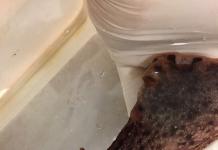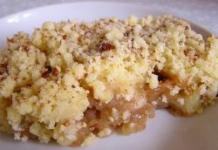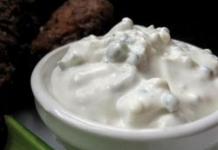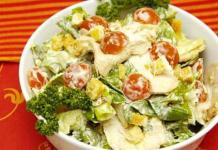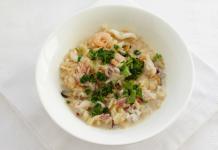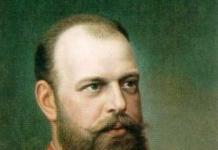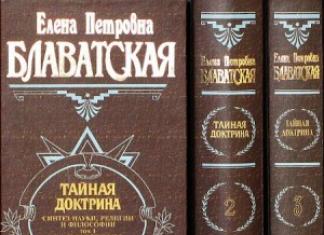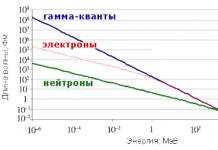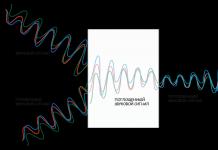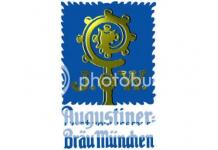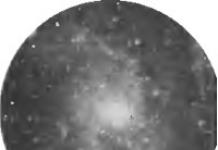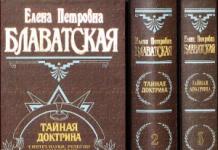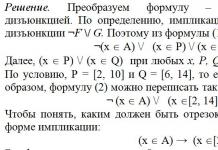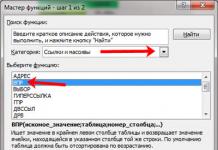Beer Hall "Hofbräuhaus", Munich, Germany.
The Hofbräuhaus (“Court Brewery”) is a world-famous large beer garden with a beer garden located in Munich. It is one of the city's main tourist attractions. Over the years, the Hofbräuhaus was visited by Mozart, Lenin and Krupskaya, and it was here that Hitler announced the official program of the Nazi party. In this report I will talk about the history of the Hofbräuhaus, show some of my own, as well as archival photographs.
But first, a little history...
The court brewery in Munich was founded on September 27, 1589 by the Bavarian Duke William V the Pious, and initially brewed only heavy dark beer from dark Munich malt. William's son and heir, Maximilian I, did not like this variety, preferring a milder wheat beer (German: Weissbier). In 1602, the Duke banned all private breweries from preparing weissbier, securing a monopoly for his court brewery, which allowed it to produce 1,444 hectoliters of wheat beer in 1605 alone.
In 1607, Maximilian I decided to move the production of wheat beer and build a new brewery in Munich - the Hofbräuhaus (“court beer house”) on Platzl street. Since 1828, the brewery has been open to the public. In 1897, the building was rebuilt as a restaurant, and in 1958 it was completely reconstructed.
In 1610, Maximilian I, by his edict, allowed Munich innkeepers to purchase beer from the Hofbrauhaus and serve it not only to the courtiers, but also to ordinary citizens. Since 1781, the composer Mozart came here. Over the course of 200 years, in addition to statesmen, many burghers also became addicted to the royal beer.
In 1828, by decree of King Ludwig I, a public beer hall and tavern was opened right in the Hofbräuhaus. On October 1, 1844, the king again demonstrated his concern for the people by lowering the price of beer: from now on, instead of 6.5 kreuzers, a liter mug of Hofbräu beer cost only 5, so that, as Ludwig I said, “the working class and the soldiers were able to afford a healthy and affordable drink.”
To protect against counterfeiting, in 1879 the “HB” (Hofbräu) brand became a registered trademark; the director of the brewery assigned the exclusive right to use it to the Royal Court Beer House in Munich.
During his first emigration, Vladimir Ilyich Ulyanov, at that time an active member of the RSDLP, living illegally in Munich on Kaiser Street, visited the Hofbräuhaus. During this period, the editorial office of the Iskra newspaper operated illegally in the city. The editorial staff, in addition to Ulyanov-Lenin, included Plekhanov, Martov, Axelrod, Zasulich, Parvus and Potresov. From April 1901, Krupskaya became the editorial secretary, who later wrote in her diary in German: “Besonders gern erinnern wir uns an das Hofbräuhaus, wo das gute Bier alle Klassenunterschiede verwischt” (We especially fondly remember the Court Brewery, where there is excellent beer erases all class differences).
On February 24, 1920, the first major public meeting of the German Workers' Party began in the Main Hall of the Hofbräuhaus, attended by more than 2,000 people. At this meeting, which lasted four hours, Hitler announced the 25 Point Program, which became the official program of the Nazi Party, and proposed renaming the organization the National Socialist German Workers' Party.
This date is considered the date of the formation of the NSDAP and for 11 years every year, starting in 1933, after the National Socialists came to power, it was celebrated at the Hofbrauhaus. On February 24, 1941, at a ceremony marking the anniversary of the Nazi Party at the Hofbräuhaus, Hitler announced a plan to intensively use submarines in combat.
All photos are taken from Google image search, incl. from the archives of Life magazine.
During the Second World War, during strategic bombing, the building was heavily damaged, with the exception of a small part of the ground floor and cellars, thanks to which several hundred valuable antique beer mugs were saved. The building was completely restored after the destruction of World War II only in 1958. The total number of seats in the restaurant is about 4,000.
Today it is a bright, lively and cheerful place, although 100% touristic...
Personalized mugs with locks:
A couple of years ago, on May 9, a group of friends and I were passing through Munich on the way from Dortmund to Salzburg. Naturally, we stopped at the Hofbräuhaus in the evening; in the huge hall, several “Russian” tables sang “Katyusha” and raised their glasses to Victory Day, completely drowning out the Bavarian barrel organ. Whether it’s good or bad to sing “Katyusha” in the Hofbräubaus on Victory Day is a debatable question, I think that in the modern world you just need to remember Victory Day. And the beer hall is precisely created for songs and fun, I don’t see anything reprehensible in the fact that Russians can raise a toast together on May 9 anywhere in the world.
Much has changed since the war, and a resident of the victorious country now needs to “humble himself” by going “to bow” to the German embassy for a visa...
Munich...The city of Oktoberfest, beer, beautiful architecture and the craze for the disgusting Bayern.
For me, the Munich beer scene is divided into two parts - big brewers and small ones. Let's start with the big ones.
Spaten
The Spaten plant is located on a gigantic territory surrounded by the streets Marsstrasse, Spatenstrasse, Denisstrasse and Karlstrasse. This is probably the most famous Munich beer. There is no bar at the factory. The restaurant nearby, according to recent information, is closed and put up for sale, so of the places I know of for tasting Spaten, the only place left is
Spaten an der Oper
located on Max Josef Platz opposite the opera building. The place is very pretentious, you can’t just drink beer, you’ll have to have lunch. The prices are steep, but according to reviews the cuisine is decent.
Beer - 10
Food - 8
Service - 8
Atmosphere - 5 (for pathos)
Augustiner

Augustiner beer is the most consumed Munich beer, with Munich residents themselves drinking a large share. It is also called folk beer. Light hell and weiss are good in any weather; for cold weather there is Maximator. There are several specialty restaurants in the center of Munich, but my favorite is
Augustiner Keller
http://www.augustinerkeller.de/
on Arnulfstrasse. This is, in fact, not only a restaurant, but also a beer garden, where it is very pleasant to sip beer in the shade of the trees. In addition, the food here is delicious, and the hot assorted meats are generally beyond praise. It contains duck and rabbit, a couple of sausages, and a piece of pork ham. Very tasty place. In addition to this restaurant, there are Augustiner establishments on Neuhauser Strasse and at the intersection of Brauhausstrasse and Platzl.
Scores (minimum - 1, maximum - 10):
Beer - 10
Food - 10
Service - 10
Atmosphere - 10
Levenbrau

After INBEV purchased Levenbroy, there were serious fears that the brand would wither away or lose its original identity, as often happened with factories around the world, but, fortunately, they were not confirmed. My favorites within this brand are Dunkel (dark), Schwarzweiss (dark wheat) and Doppelbock Triumphant. I visited two Levenbroev restaurants: at Max Josef Platz and
LevenbräuKeller
http://www.loewenbraeukeller.com/en/
at the intersection of Dachauerstrasse and Nimpenburger Strasse. A large beer hall, which is traditional for Munich, very tasty food, the entire Levenbroy line, souvenirs with the symbols of the brewery and just a good atmosphere.
Scores (minimum - 1, maximum - 10):
Beer - 10
Food - 10
Service - 10
Atmosphere - 10
Paulaner
Hacker-Pschorr

http://www.hacker-pschorr.de/
The least interesting brewery of the big Munich six, in my opinion. In the center there is a restaurant of this brewery at the intersection of Sedlinger Strasse and Haken Strasse, but I didn’t like it there, the food was mediocre, the waiters were stupid, the beer was ordinary.
Scores (minimum - 1, maximum - 10):
Beer - 8
Food - 8
Service - 5
Atmosphere - 10
Hofbräu
http://www.hofbraeuhaus.de/
Last in order, but far from last in quality, their light variety is deservedly loved by many. But, in fairness, I note that the lion’s share of its popularity belongs to the notorious Hofbrauhaus, the beer hall in which the Beer Hall Putsch began, from which Adolf Hitler began his rise to power. By the way, the Hofbräuhaus building never saw the Nazis within its walls; it is a remake, standing at the intersection of Brauhausstrasse and Platzl. The present building was razed to the ground in 1945. Nevertheless, you need to go to the Hofbrauhaus once. For the sake of the atmosphere of fun, which is supported in every possible way by an orchestra in national costumes playing national songs. For the sake of the souvenir shop, the coolest in Munich, for show in the end. There are an insane amount of people there, but the waiters manage to bring your order within 2-3 minutes.

Scores (minimum - 1, maximum - 10):
Beer - 10
Food - 8
Service - 7
Atmosphere - 10
It has long been known that Munich is a city recognized as the beer capital. When you come here, you can taste the best varieties of foamy drink, brewed according to traditional German recipes, many of which have existed for hundreds of years. Let's look further at the list of the best producers of Munich beer, as well as some places where you can taste it.
Lowenbrau
Having visited the Oktoberfest 2018, you should definitely try Löwenbräu beer, which, since its appearance on the market, has established itself as the best foamy drink in all of Germany. It is known that beer has been brewed according to this recipe for a very long time - since the 14th century, and it has been sold in pubs since 1383. Outside of Bavaria, Löwenbräu also gained instant popularity - it was especially loved by foreigners.
Paulaner
Munich lager has been brewed since 1630. The comments left by fans of this drink say that all beers produced under this brand have a special and rich taste, making the drink incredibly valuable on the market. Reviews of Paulaner brand beer also say that each type of drink has a special Oktoberfest spirit.
It should be noted that Paulaner also sells its products in Russia. In particular, on the shelves of beer stores in Russia you can find light lager, classic and dark Oktoberfest beer, and non-alcoholic wheat beer.
The peculiarity of Paulaner beer is that all its types are produced exclusively in Germany, at a plant in Munich. Its taste is stable and recognizable, making the drink especially appreciated by true gourmets.
A special type of beer is brewed under the Paulaner brand name - Oktoberfest. This drink has a short shelf life, designed for the entire period of the festival of the same name.

Spaten-Franziskaner-Bräu
From the general list of Munich beers, popular products include Spaten and Franziskaner from the world-famous manufacturer Bräu. Let us consider further each of the presented varieties separately.
Speaking about the drink called Spaten, it should be noted that this type of beer belongs to the light category. It is produced exclusively in Munich. According to the majority of Russian gourmets, this drink is the most affordable for local buyers - its cost is about 100 rubles per 0.5 liter bottle. Moreover, the product in question has a rich wheat taste, which attracts real beer gourmets.
Franziskaner beer is brewed in the weissber style, based on wheat. The drink is also quite affordable for the Russian consumer, which makes it quite popular not only in Munich, but also in Russia. It has amazing taste, which attracts a lot of fans.
Hacker-Pschorr
You can taste the drink produced under this name exclusively in Munich beer halls or in upscale craft beer stores in Russia. Its cost is quite high - about 250 rubles per 0.5 liter bottle.
This drink is produced only in Munich, in a separate plant. The product is incredibly popular not only among German gourmets - it is also very loved by Russians. Its cost is quite high, but this does not make the product less popular - most of its fans claim that the price set for a bottle of foamy drink from Hacker-Pschorr fully corresponds to its taste characteristics.
Reviews about the manufacturer say that when you visit Munich, you should definitely try helles beer from Hacker-Pschorr, as well as a special amber lager (kellerbier) and wheat weissbier.
Altbier
Altbier is another popular beer in Munich. This company produces a foamy drink according to the best old recipes, which were invented long before the invention of the technology for preparing the popular lager.
Altbier produces ale that has a honey flavor and a clear structure. Gourmets note its pleasant taste of barley malt, as well as the fact that when bottled the drink has a thick foamy head.
The Germans themselves claim that the ancient Celts brewed ale using this recipe, about 3,000 years ago. Currently, the beer recipe has been significantly improved. The drink brewed according to this recipe has a pleasant strength - about 4.7-4.9%.

Krombacher
The manufacturer in Munich is treated with special respect. The Germans note that the drink produced under the logo of this brewery has a bright taste and medium strength. The reviews left for this brand say that the most striking Krombacher products are pills, weisen and hell. Krombacher also produces excellent strong Munich beer - dark (filtered).
The Krombacher plant has been operating for a very long time - since 1803.
Oettinger
Oettinger is one of the most popular German beer producers. The plant of this company is located in Munich. Since its opening in 1731, Oettinger began producing several types of Munich beer - in a short time they became very popular. Currently, the manufacturer in question is in the top three in terms of drink sales. Moreover, the foamy drink, released under the Oettinger logo, is a permanent participant in Oktoberfest. In 2018, it became the top seller during the world-famous festival.
Speaking about the best varieties produced under the Oettinger logo, it should be noted such as the light and quite strong (5.2%) Premium Lager, the double bock Optimator (7.2%), München Dunkel, as well as a unique drink that attracts the attention of most beer gourmets both in Germany and Russia - Franziskaner Hefe-Weissbier Dunkel, a dark beer with a red tint.
Popular beers
As practice shows, Munich produces a lot of types of beer, brewed under the names of various brands. Which ones are the most popular and in demand?
Among the Germans there are many fans of ale, which has pleasant properties, as well as a mild taste and a subtle wheat aroma. This type of beer is produced in a large number of varieties, the most famous of which include Altbier, Doppelsticke, Berliner Weisse, and Dampfbier. Lager is an equally popular variety. Munich also produces a lot of types of this type of foamy drink, of which the most famous are Helles, Kellerbier, Dunkel, Bockbier.
As for the dark varieties of Munich beer, Eisbier and Eisbock have remained especially popular for several years. Along with them, beer fans love Dinkelbier and Emmerbier.
Among the dark varieties, the most popular is Dunkel beer, which is a unique symbol of Germany and, in particular, Munich. It is based on three types of malt: Munich, caramel and Pilsner.
Where can you taste the best beers in Munich? Reviews from Russian tourists who have visited Munich often note that the most delicious types of foamy drink can be tasted in restaurants and bars created right on the territory of factories, as well as in upscale craft restaurants. Let us consider below a list of the best of them.

"Hofbrauhaus"
One of the most popular beer halls in Munich is the Hofbräuhaus, an establishment located in the building of the brewery of the same name.
As noted in many comments left by visitors to this restaurant, when you get here, you can immediately feel the whole atmosphere of chaos that reigns within the walls of the restaurant. Hundreds of visitors who are true fans of the foamy drink sit here every day, and beer brewed according to the best traditional recipes flows like a river. Waiters run tirelessly between the wooden benches and massive tables here, serving customers at their best. A team of musicians plays in the establishment every day, astonishing visitors with skillfully reproduced compositions. Reviews left by Russian tourists often say that, having sensed them, it is difficult to resist starting to dance.
The establishment in question serves not only amazing beer brewed according to ancient recipes, but also excellent snacks to go with it. Speaking about the best beers served here, it should be noted that they include such drinks as top-fermented wheat Münchner Weiße, dark Hofbräu Dunkel and light Hofbräu Original. As for appetizers, the most popular ones are sausages and cabbage, as well as pork knuckle, which is sized for a large group.
Beer fans claim that when you go to the Hofbräuhaus restaurant, you can sit next to anyone, taking up any free seat on the bench. This establishment consists of two floors, however, when visiting it, you should try to stay on the first floor, because this is where, according to experienced visitors, real fun and life are in full swing.
Speaking about the pricing policy of the establishment, many experienced travelers note that it is at a fairly acceptable level. In particular, an evening spent together in the Hofbräuhaus beer restaurant usually costs about 45 euros (approximately 3000-3500 rubles).
The establishment in question is located at Platzl 9, which is within walking distance from Marienplatz Square, located in the central part of Munich. You can visit this restaurant any day of the week, from 9:00 to 23:00.
"Augustiner"
As you know, one of the most popular brands producing high-quality brewing products is Augustiner. Within the walls of this plant, located at Landsbergerstr, 19, there is a large and very cozy restaurant, decorated in the best traditions of the Bavarian style.
Reviews about this restaurant very often say that it is within its walls that visitors can taste the best types of foamy drink, as well as signature snacks prepared in the style of home cooking. The establishment's pricing policy is very low - lunch for two costs about 17-20 euros, which is equivalent to 1000-1500 rubles.
It should be noted that this Munich beer hall is famous for its amazing service, as well as a homely atmosphere created by its unique interior and amazing cuisine. For all those planning to visit here, experienced travelers recommend trying two signature and especially tasty dishes presented on the menu - traditional Bavarian sausages, as well as goulash soup.

Ratskeller
Ratskeller is located in an easily accessible location in central Munich, close to Marientplatz and the New Town Hall. This establishment belongs to the category of ancient ones, as it was opened in the 19th century and operates to this day.
Like many other popular capitals, Ratskeller has a very large area, with seating for 2000 visitors. It is divided into several halls, furnished in the best traditions of the Bavarian style. Having been here, most visitors note that a pleasant atmosphere reigns inside Ratskeller, complemented by high-quality service, as well as food, which is characterized by unique tastes. Many guests also pay attention to the fact that the Ratskeller halls are equipped with antique furniture, which adds a special atmosphere to the overall picture of the restaurant’s interior decoration.
The establishment serves excellent beer with excellent taste. Of the entire range presented, Lowenbrau foamy drink is especially popular here. As for food, the menu available in the establishment consists mainly of German dishes. In their reviews of local dishes, many restaurant visitors recommend that new guests of the establishment definitely try the local apple strudel, served with a scoop of ice cream.

Beer Hall at the Oktoberfest Museum
Almost everyone knows that in Munich there is a museum dedicated to the annual Oktoberfest beer festival, but not everyone knows that there is a small establishment within the walls of which serves an excellent foamy drink, as well as snacks for it, which have excellent taste qualities. This establishment appeared in 2005 and since its founding has been extremely popular among city guests, as well as local residents.
The interior of the establishment is filled with the atmosphere of a beer cellar. There are a lot of tables set up on large beer barrels. The walls of the main hall are decorated with natural red brick and stonework, and throughout its entire area you can see a lot of elements representing beer paraphernalia.
The pub, created at the Oktoberfest Museum, offers inexpensive beer brewed according to simple recipes. The cost of the drink served here fluctuates around 2 euros per glass (150 rubles). The establishment is located at: Sterneckerstrasse, 2.
Zum Spockmeier
Among the best beer halls located on the central square is the large and quite popular establishment Zum Spockmeier, where, according to many tourists, you can taste the most delicious Paulander, as well as other, no less tasty varieties of Munich draft beer.
The establishment is famous for the fact that it provides high-quality service within its walls, as well as constantly playing music and a cozy, friendly atmosphere filled with constant fun. The most popular beer snack here is white Munich sausages, which are prepared quite quickly, like all other dishes ordered. Also, in reviews of the restaurant, its visitors often note the taste characteristics of traditional Bavarian sausages and goulash soup, which, according to vacationers, contains much more meat than liquid base.
When visiting the establishment in question, if possible, you should sit either near a window or in an open area, which offers a stunning view of the city hall.
The restaurant is located at Rosenstrasse, 9. You can visit it from 9 a.m. until night.

Seehaus
The best varieties of German beer can be tasted by visiting the popular Seehaus restaurant, the main feature of which is that it is located outdoors, on the territory of the English Garden. Visitors to the establishment can enjoy not only the excellent taste of local beer, but also the beauty of the surrounding nature and the lake, on the shore of which the garden is located. When planning a visit to this outdoor establishment, you must remember that its kitchen is only open until 7 pm; at later times, you can only purchase a foamy drink here. By the way, it is in this establishment that you can taste the original Pilsner beer, which is produced at a plant located near the English Garden.
Seehaus' pricing policy, according to most travelers, is at an acceptable level. The average cost of lunch, which will include not only beer, but also snacks (including branded sausages), is about 20 euros, which is equivalent to 1,500 rubles.
Königlicher Hirschgarten
Königlicher Hirschgarten is a true German classic, which is a large restaurant where Munich residents and city guests prefer to gather with whole families or noisy groups of friends.
The Königlicher Hirschgarten offers a wide selection of the best Munich beers, with Lagerbier Hell and Augustiner being the most popular beers. Moreover, the restaurant menu has a wide selection of original snacks, among which the flagships are assorted sausages. Guests can bring their own food if desired. After drinking a foamy drink, each visitor must wash the mug after himself - this is considered the main responsibility of each visitor.
It should be noted that Königlicher Hirschgarten is not just a restaurant, but also an excellent entertainment venue. On the vast territory of the restaurant in question there is a large playground for children, as well as a place where real deer live; visitors really like to feed them.
The Hofbräuhaus is one of the oldest breweries in Munich. Now it is a beer garden with a garden located on Platzl.
Hofbräuhaus was founded in the 16th century as the court brewery of the Bavarian dukes. Over time, beer became available not only to dukes, but also to ordinary citizens. In the 19th century, the Hofbrä u brand was registered to protect against counterfeiting. In the same century, the old brewery building was replaced by a new restaurant building.
The new building can accommodate about 4,000 people. Halls of the Hofbräuhaus: the Schwemme hall (cellar) with Bavarian music, the Bräustüberl office (beer room), decorated in retro style, the main hall, which in addition to the stage and tables houses a museum of the history of the brewery, and an open-air garden. Evenings with Bavarian music and dancing are held daily in the halls. People are offered three types of beer: dark bottom-fermented, light bottom-fermented, and top-fermented wheat. They also make beer cocktails with lemonade. For a snack - Bavarian dishes (white sausages and roast pork). At the kiosk you can purchase memorable souvenirs with Hofbräu branded attributes.
Beer Paulaner
The Paulaner beer garden is very popular among locals and tourists, so it is not very cozy here until 7 pm due to the large number of visitors. After the townspeople go home, the pub becomes much more comfortable. In summer, this place is even more cozy: you can sit at tables outside under the spreading chestnut trees.
There are 400 seats in the beer hall with self-service and 300 with service, there is also a VIP box and a children's playground. The beer hall serves all types of Paulaner beer, which is produced by the largest brewery in Bavaria, which has the right to present its beer at the beer festival - Paulaner Oktoberfest. The beers presented here are: Paulaner Original Munich Hel, Paulaner Hefe-Weissbier, Paulaner Hefe-Weissbier Dunkel, Paulaner Hefe-Weissbier non-alcoholic and even seasonal varieties Paulaner Maibier and Paulaner Oktoberfest.
The establishment is open from 10 am to 1 am.
Beer Augustiner
The Augustiner Beer Hall is a great place to sample traditional Bavarian cuisine, sample local brews and enjoy the atmosphere of a beer festival. It is located in Munich, Germany. The territory of the pub is very large, it occupies an entire square and consists of a lower and an upper zone (the lower zone has a self-service principle).
In the beer hall you will find high-quality cuisine combined with a traditionally cozy atmosphere. The various rooms and halls of the old building, which literally breathes history, will satisfy a wide variety of needs and tastes: from the wonderful homely furnishings of the "Birstüberl" to the cellar with its unique vaulted ceilings, which are about eight meters high. Here you will be offered traditional Bavarian dishes, as well as a variety of specialties from other cuisines, including light vegetarian ones.
They rely on the highest quality and use of local, seasonal products, the only downside is that you won't be able to book a table here during Oktoberfest.
Beer Hacker Pschorr
The traditions of real Bavarian brewing are carefully preserved in the Hacker Pschorr beer hall, located in the center of Munich, on Weinstrasse. This is a rather small establishment, designed for 100 people. The products of the monastery brewery, founded in 1455, are served here, namely one type of dark beer and two types of light beer.
One of the signature dishes is the “Bavarian plate”, on which several types of Bavarian sausages and meat are aesthetically laid out. Guests are also offered a large variety of snacks. Beer is drunk from 0.5 liter glasses. Its cost ranges from 10 to 15 euros per glass.
The beer was named after the Hacker Pschorr trademark, created in 1417, when a new Hacker brewery was built in Munich, named after the surname of its founder. This place is very popular during Oktoberfest, so if you want to book a table, make sure to do so in advance.
Beer Hall Spaten
The Spaten beer garden is located in Munich on Marsstrasse directly opposite the Kings Hotel Center. This is a small classic German establishment where you can not only enjoy the national drink, but also have a hearty meal. The atmosphere here is quite simple, without any special frills, but the food is excellent!
Translated, Spaten means “shovel”, this is a symbol of the brewery of the same name, which implies a shovel for malt. The owner of the establishment is a colorful Croatian who adheres to all the rules for transporting and storing beer, you can be sure of the quality of the drink provided to you. Spaten beer, like all Bavarian beers, is brewed in accordance with the Purity Law, which was passed in 1516.
Many beer-goers prefer to drink a light drink between meals to cleanse their taste buds. If you want to try the original taste of German beer, you will have to pay about 10 euros for a liter mug. These are the prices that were here at Oktoberfest 2012.
Lowenbrau beer hall
The most famous beer establishment in Munich is Lowenbrau. This iconic restaurant seats 2,000 people, has a 1,000-seat beer garden and is located close to Munich Central Station.
The establishment was opened in 1883, and in the past it accommodated almost twice as many visitors. The fact is that during the bombing in 1944, the huge hall was destroyed, and after the end of the war it was restored in a much smaller size. But, nevertheless, Lowenbrau remains one of the most luxuriously decorated beer establishments in Munich.
The establishment attracts visitors all year round, bringing joy not only from beer (which, by the way, is brewed across the street), but also from excellent Bavarian cuisine. Here it is customary to enjoy beer with fried pork ribs.
Sights of Munich


I have long wanted to devote a separate page to this interesting topic, but I could not find a more detailed description anywhere except in Alexander Petrochenkov’s guidebook “Bavarian Beer”. I am pleased to present an excerpt from this book dedicated to the Big Munich Six.
Publishing house of Anton Zhigulsky. Moscow 2008
All photographs presented in this section are from my personal collection. Complete photo collection.
Munich Big Six
Speaking about the capital of Bavaria, Munich, it is impossible to do without mentioning the “Big Munich Six” - the six largest brewing companies in Munich, whose formation is most closely intertwined with the history of this city: Hofbräu, Löwenbräu, Spatenbräu, Augustiner-Bräu, Paulanerbräu and Hacker-Pschorr Br äu. Beers from these six brands dominate Munich, and for many foreign beer drinkers, these brands limit the horizon of Bavarian brewing.
Of course, Munich beer is not limited to the products of the Big Munich Six. A detailed examination of the worthy products of these six traditional brewers is certainly worth some time and effort. Which pub, beer garden or beer hall in Munich to go to - you can decide on the spot. The main thing is that there can be no mistake here: in Munich you will not be offered bad beer anywhere.
However, even more refined Bavarian beers can be found outside of Munich. But this will be discussed further. In the meantime, let's look at what the Big Six Munich brewers offer.



